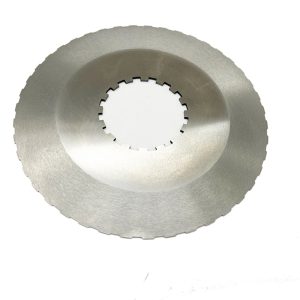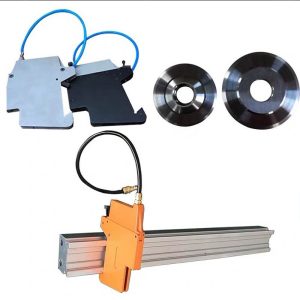Heutzutage entscheiden sich viele ausländische Kunden für Wolframkarbid als Verarbeitungsmaterial für Schneidwerkzeuge. Was sind also die Hauptvorteile von Schneidwerkzeugen aus Wolframkarbid und welche Materialien eignen sich zum Schneiden? Jetzt werde ich die oben genannten Fragen dazu beantworten.

Hartmetall
Hartmetall ist eine Legierung, die durch Sintern von Hartmetallpulver hergestellt wird. Es besteht hauptsächlich aus Pulvern aus Wolframkarbid (WC, Wolframkarbid), Titankarbid (TiC) usw., die mit Bindemitteln (Binder) wie Kobalt (Co) und Nickel (Ni) gemischt und dann gesintert werden.
Häufig verwendete Hartmetallwerkstoffe werden entsprechend ihrer Zusammensetzung und Leistungseigenschaften in drei Kategorien unterteilt: Wolfram-Kobalt, Wolfram-Titan-Kobalt und Wolfram-Titan-Tantal (Niob).
- Wolfram-Kobalt-Karbid (WC-Co), Codename YG. Geeignet für die Kurzspanbearbeitung von Eisen- und Nichteisenmetallen sowie die Bearbeitung nichtmetallischer Werkstoffe wie Gusseisen, Messingguss, Bakelit usw.
- Wolfram-Titan-Kobalt-Karbid (WC-TiC-Co), Codename YT. Geeignet für die Langspanbearbeitung von Eisenmetallen wie Stahl.
(3) Wolfram-Titan-Tantal (Niob)-Kobalt-Karbid [WC-TiC-TaC(Nbc)-Co], auch Allzweckkarbid genannt, Codename YW. Die Verarbeitungslebensdauer von Allzweckkarbid für schwer zu verarbeitende Materialien wie Edelstahl ist viel länger als die anderer Karbide.
Eigenschaften von Wolframkarbid
Obwohl Wolframkarbid relativ teuer ist, ist es immer noch das beste Material für Schneidwerkzeuge und verfügt über viele hervorragende Eigenschaften. Das wichtigste Merkmal ist seine hohe Härte (69-81 HRC) und Verschleißfestigkeit sowie eine bessere Schlagzähigkeit, Bruchzähigkeit, Dauerfestigkeit, Biegefestigkeit und gute Korrosions- und Oxidationsbeständigkeit.
Anwendung von Wolframkarbid

Wolframkarbid wird hauptsächlich im Bereich der Schneidverarbeitung verwendet und kann zur Herstellung von Drehwerkzeugen, Fräsern, Hobeln, Bohrern usw. verwendet werden. In derselben Legierung ist die Zähigkeit umso besser, je mehr Kobalt enthalten ist, was für die Grobverarbeitung geeignet ist; je mehr Karbid enthalten ist, desto höher ist die Warmhärte, desto schlechter ist die Zähigkeit, was für die Feinverarbeitung geeignet ist.